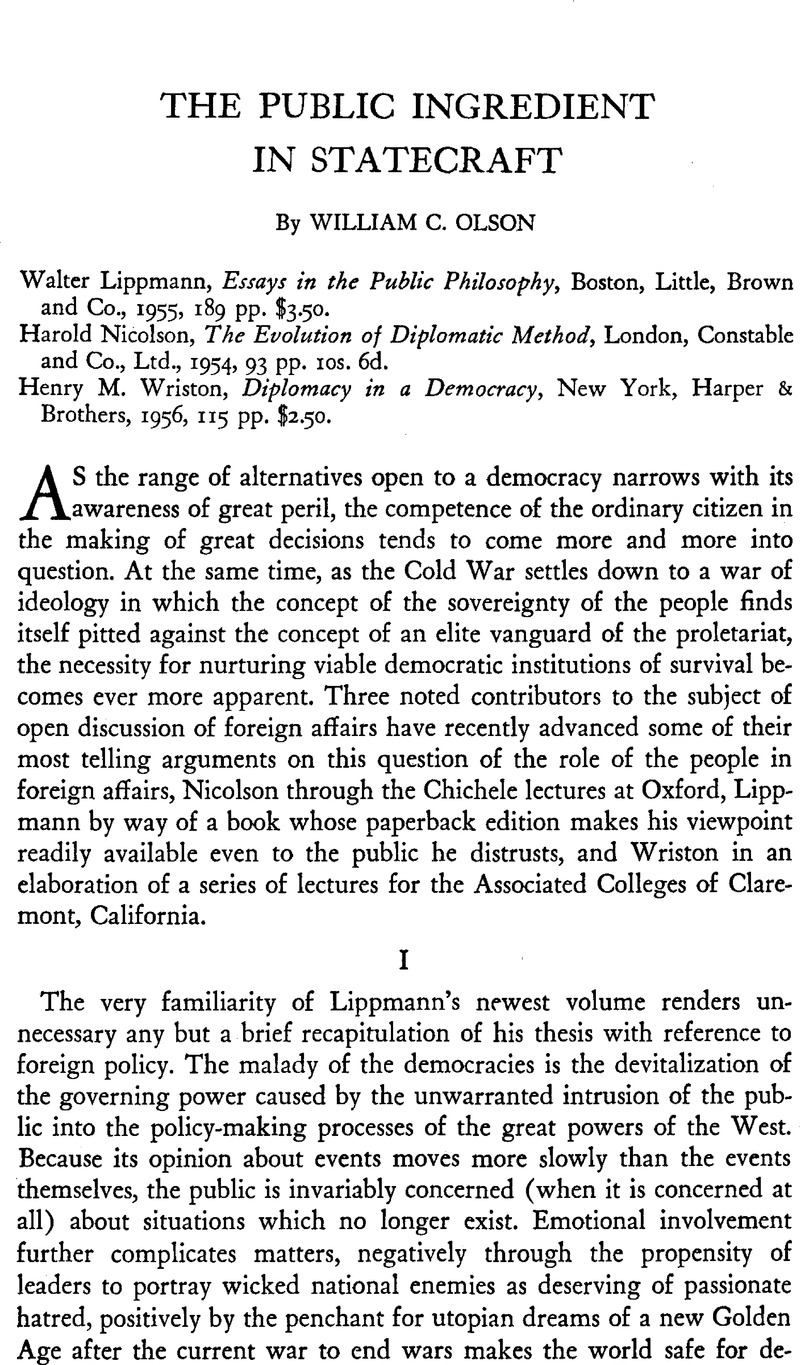No CrossRef data available.
Published online by Cambridge University Press: 18 July 2011

1 American Diplomacy, 1900–1950, Chicago, 1951, p. 93; reviewed by Kirk, Grayson in World Politics, V, No. 1 (October 1952), pp. 110–15.CrossRefGoogle Scholar
2 Realities of American Foreign Policy, Princeton, 1954, p. 44; reviewed by Carleton, William G. in World Politics, VII, No. 4. (July 1955), pp. 627–39.CrossRefGoogle Scholar
3 Realities of American Foreign Policy, p. 110.
4 Ibid., p. 44.
5 American Diplomacy, 1900–1950, p. 100.
6 Realities of American Foreign Policy, p. 47.
7 Diplomacy, London, 1939, p. 50.
8 Friedrich, C. J., Constitutional Government and Democracy, Boston, 1946, pp. 589–90.Google Scholar
9 During the foreign aid hearings in the spring of 1957, it was revealed that the Secretary of State's confidential emergency funds had been used to take a sample of public opinion purporting to reveal overwhelming support for continued foreign aid. The House Government Operations Committee later issued a statement reporting that, since 1943, the Department of State had “illegally” spent more than one-half million dollars on polls on various foreign-policy issues, and severely criticized the Bureau of the Budget for failing to prevent this practice. House Report 1166, August 14, 1957; Congressional Quarterly, XV, No. 33 (week ending August 16, 1957), p. 976.
10 American Diplomacy, 1900–1950, p. 93.
11 Wriston's, more recent article, “Education and the National Interest,” Foreign Affairs, XXXV, No. 4 (July 1957), pp. 564–80.CrossRefGoogle Scholar